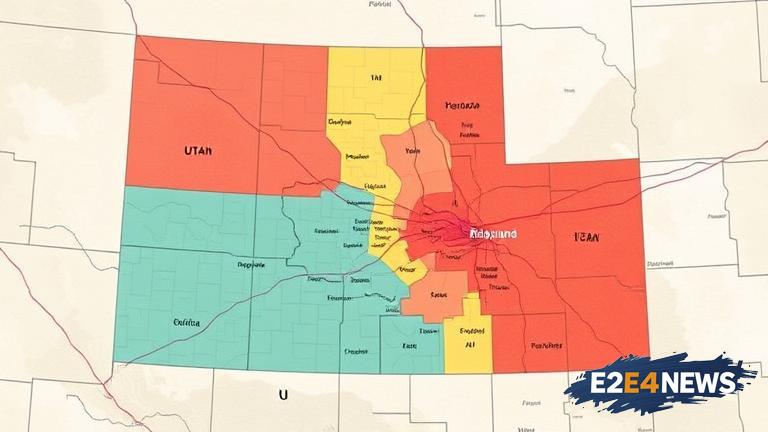In a significant decision, a federal judge has ordered the state of Utah to redraw its congressional map, citing concerns over gerrymandering. The ruling comes after a lengthy court battle, with plaintiffs arguing that the current map unfairly favors Republican candidates. The judge’s decision is expected to have far-reaching implications for the state’s electoral landscape. Utah’s current congressional map has been in place since 2011, and critics argue that it has been manipulated to favor Republican candidates. The plaintiffs in the case presented evidence that the map was drawn with the intention of diluting the voting power of Democratic-leaning areas. The judge agreed, stating that the map was indeed gerrymandered and must be redrawn to ensure fair representation. The ruling is a major victory for voting rights advocates, who have long argued that gerrymandering is a pervasive problem in American politics. Gerrymandering, or the manipulation of electoral district boundaries for political gain, is a contentious issue that has been debated in courts and legislatures across the country. The practice can lead to a lack of competitive elections, as well as a disproportionate representation of certain groups. In Utah, the current map has resulted in a heavily Republican delegation, despite the state’s growing Democratic population. The judge’s decision is expected to lead to a more balanced representation of the state’s voters. The ruling is also likely to have implications for other states, as courts and legislatures grapple with the issue of gerrymandering. The Supreme Court has recently weighed in on the issue, ruling that federal courts have the authority to hear gerrymandering cases. However, the court also established a high bar for plaintiffs to prove that a map is unfairly gerrymandered. Despite this, the Utah case is a significant victory for voting rights advocates, who argue that gerrymandering is a threat to democracy. The case is also a reminder that the struggle for fair representation is ongoing, and that courts and legislatures must remain vigilant in protecting the rights of voters. As the state of Utah moves forward with redrawing its congressional map, it is likely that other states will be watching closely. The ruling is a major development in the ongoing debate over gerrymandering, and is likely to have significant implications for the future of American politics. The decision is also a testament to the power of the judiciary in protecting the rights of voters. In recent years, courts have played an increasingly important role in shaping the electoral landscape, and the Utah case is just the latest example. As the country moves forward, it is likely that the issue of gerrymandering will continue to be a major point of contention. However, with the help of the judiciary, it is possible that the electoral system can be made more fair and representative. The ruling is a significant step forward in this effort, and is a major victory for voting rights advocates. The state of Utah has been given a deadline to redraw its congressional map, and it is likely that the new map will be in place for the next election. The ruling is a major development in the ongoing debate over gerrymandering, and is likely to have significant implications for the future of American politics.
